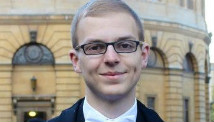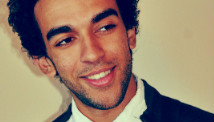NEW YORK (Reuters) - Stocks fell for a fifth straight day on Friday, dropping 1 percent and marking the S&P 500's longest losing streak in three months as the federal government edged closer to the "fiscal cliff" with no solution in sight.
President Barack Obama and top congressional leaders met at the White House to work on a solution for the draconian debt-reduction measures set to take effect beginning next week. Stocks, which have been influenced by little else than the flood of fiscal cliff headlines from Washington in recent days, extended losses going into the close with the Dow Jones industrial average and the S&P 500 each losing 1 percent, after reports that Obama would not offer a new plan to Republicans. The Dow closed below 13,000 for the first time since December 4.
"I was stunned Obama didn't have another plan, and that's absolutely why we sold off," said Mike Shea, managing partner at Direct Access Partners LLC in New York. "He's going to force the House to come to him with something different. I think that's a surprise. The entire market is disappointed in a lack of leadership in Washington."
In a sign of investor anxiety, the CBOE Volatility Index <.vix>, known as the VIX, jumped 16.69 percent to 22.72, closing at its highest level since June. Wall Street's favorite fear barometer has risen for five straight weeks, surging more than 40 percent over that time.
The Dow Jones industrial average <.dji> dropped 158.20 points, or 1.21 percent, to 12,938.11 at the close. The Standard & Poor's 500 Index <.spx> lost 15.67 points, or 1.11 percent, to 1,402.43. The Nasdaq Composite Index <.ixic> fell 25.59 points, or 0.86 percent, to end at 2,960.31.
For the week, the Dow fell 1.9 percent. The S&P 500 also lost 1.9 percent for the week, marking its worst weekly performance since mid-November. The Nasdaq finished the week down 2 percent. In contrast, the VIX jumped 22 percent for the week.
Pessimism continued after the market closed, with stock futures indicating even steeper losses. S&P 500 futures dropped 26.7 points, or 1.9 percent, eclipsing the decline seen in the regular session.
All 10 S&P 500 sectors fell during Friday's regular trading, with most posting declines of 1 percent, but energy and material shares were among the weakest of the day, with both groups closely tied to the pace of growth.
An S&P energy sector index <.gspe> slid 1.8 percent, with Exxon Mobil
Decliners outnumbered advancers by a ratio of slightly more than 2 to 1 on the New York Stock Exchange, while on the Nasdaq, two stocks fell for every one that rose.
"We've been whipsawing around on low volume and rumors that come out on the cliff," said Eric Green, senior portfolio manager at Penn Capital Management in Philadelphia, who helps oversee $7 billion in assets.
With time running short, lawmakers may opt to allow the higher taxes and across-the-board federal spending cuts to go into effect and attempt to pass a retroactive fix soon after the new year. Standard & Poor's said an impasse on the cliff wouldn't affect the sovereign credit rating of the United States.
"We're not as concerned with January 1 as the market seems to be," said Richard Weiss, senior money manager at American Century Investments, in Mountain View, California. "Things will be resolved, just maybe not on a good timetable, and any deal can easily be retroactive."
Trading volume was light throughout the holiday-shortened week, with just 4.46 billion shares changing hands on the New York Stock Exchange, the Nasdaq and NYSE MKT on Friday, below the daily average so far this year of about 6.48 billion shares. On Monday, the U.S. stock market closed early for Christmas Eve, and the market was shut on Tuesday for Christmas. Many senior traders were absent this week for the holidays.
Highlighting Wall Street's sensitivity to developments in Washington, stocks tumbled more than 1 percent on Thursday after Senate Majority Leader Harry Reid warned that a deal was unlikely before the deadline. But late in the day, stocks nearly bounced back when the House said it would hold an unusual Sunday session to work on a fiscal solution.
Positive economic data failed to alter the market's mood.
The National Association of Realtors said contracts to buy previously owned U.S. homes rose in November to their highest level in 2-1/2 years, while a report from the Institute for Supply Management-Chicago showed business activity in the U.S. Midwest expanded in December.
"Economic reports have been very favorable, and once Congress comes to a resolution, the market should resume an upward trend, based on the data," said Weiss, who helps oversee about $125 billion in assets. "All else being equal, we see any further decline as a buying opportunity."
Barnes & Noble Inc
Shares of magicJack VocalTec Ltd
The U.S.-listed shares of Canadian drugmaker Aeterna Zentaris Inc surged 13.8 percent to $2.47 after the company said it had reached an agreement with the U.S. Food and Drug Administration on a special protocol assessment by the FDA for a Phase 3 registration trial in endometrial cancer with AEZS-108 treatment.
(Reporting by Ryan Vlastelica; Editing by Jan Paschal)




